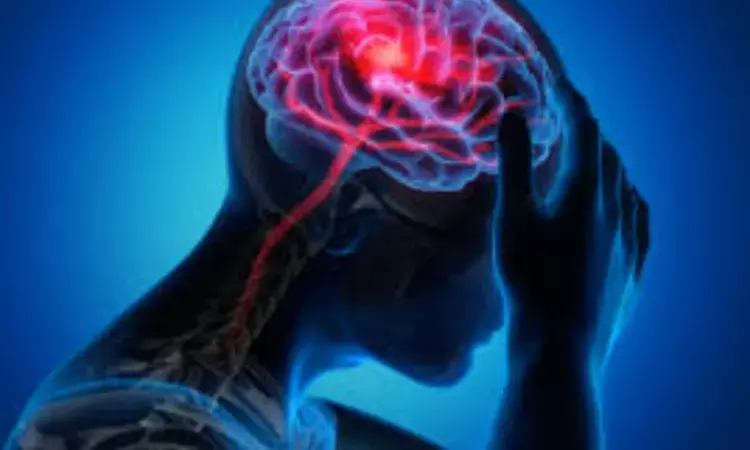- Home
- Medical news & Guidelines
- Anesthesiology
- Cardiology and CTVS
- Critical Care
- Dentistry
- Dermatology
- Diabetes and Endocrinology
- ENT
- Gastroenterology
- Medicine
- Nephrology
- Neurology
- Obstretics-Gynaecology
- Oncology
- Ophthalmology
- Orthopaedics
- Pediatrics-Neonatology
- Psychiatry
- Pulmonology
- Radiology
- Surgery
- Urology
- Laboratory Medicine
- Diet
- Nursing
- Paramedical
- Physiotherapy
- Health news
- Fact Check
- Bone Health Fact Check
- Brain Health Fact Check
- Cancer Related Fact Check
- Child Care Fact Check
- Dental and oral health fact check
- Diabetes and metabolic health fact check
- Diet and Nutrition Fact Check
- Eye and ENT Care Fact Check
- Fitness fact check
- Gut health fact check
- Heart health fact check
- Kidney health fact check
- Medical education fact check
- Men's health fact check
- Respiratory fact check
- Skin and hair care fact check
- Vaccine and Immunization fact check
- Women's health fact check
- AYUSH
- State News
- Andaman and Nicobar Islands
- Andhra Pradesh
- Arunachal Pradesh
- Assam
- Bihar
- Chandigarh
- Chattisgarh
- Dadra and Nagar Haveli
- Daman and Diu
- Delhi
- Goa
- Gujarat
- Haryana
- Himachal Pradesh
- Jammu & Kashmir
- Jharkhand
- Karnataka
- Kerala
- Ladakh
- Lakshadweep
- Madhya Pradesh
- Maharashtra
- Manipur
- Meghalaya
- Mizoram
- Nagaland
- Odisha
- Puducherry
- Punjab
- Rajasthan
- Sikkim
- Tamil Nadu
- Telangana
- Tripura
- Uttar Pradesh
- Uttrakhand
- West Bengal
- Medical Education
- Industry
Early initiation of antiplatelet after mechanical thrombectomy improves outcomes, prevents recurrence in stroke patients

USA: Early initiation of antiplatelet (AP) medication after mechanical thrombectomy in patients with acute ischemic stroke (AIS) due to large vessel occlusions significantly increased odds of better postoperative functional outcomes without increasing hemorrhagic transformation risk, a recent study has found.
The researchers reported, "Administering antiplatelet medication within 24 hours of mechanical thrombectomy, an effective procedure for stroke may help patients more successfully recover and prevent high-risk individuals from experiencing additional strokes."
The study was presented at the Society of NeuroInterventional Surgery’s (SNIS) 20th Annual Meeting on August 1, 2023.
The antiplatelet medication prevents blood clots from forming (and potentially causing strokes) by keeping platelets from sticking together. However, this medication can also potentially cause brain bleeding if administered soon after a mechanical thrombectomy. To find a way to safely use this essential medication without causing additional risk to patients, researchers reviewed data from 190 patients who underwent this treatment between 2016–2020 and categorized patients by those who received antiplatelet medication less than 24 hours after surgery and those who received the medication later.
In their study, “Safety and Functional Outcomes with Early Initiation of Antiplatelet Therapy Following Mechanical Thrombectomy in Emergent Large Vessel Occlusion Strokes: A Single Institution Registry Study,” researchers noted that patients who received antiplatelet medication within 24 hours of mechanical thrombectomy were significantly more physically independent at discharge from the hospital than patients who received the antiplatelet medication later. This difference was maintained longer-term as well, with patients who received early antiplatelet medication having much better physical functioning scores one month and three months after surgery. In addition, there was no sign that giving patients antiplatelet medication earlier led to increased risk of brain bleeding after surgery.
“Continuously working to improve patient outcomes is one of our top priorities,” said Dr. Hepzibha Alexander, a neurosurgery resident at Ascension Providence Hospital in Southfield, Michigan, and lead author in the study. “Finding a new way to safely use this already-essential medication is an exciting step forward in helping patients thrive after stroke.”
Dr Kamal Kant Kohli-MBBS, DTCD- a chest specialist with more than 30 years of practice and a flair for writing clinical articles, Dr Kamal Kant Kohli joined Medical Dialogues as a Chief Editor of Medical News. Besides writing articles, as an editor, he proofreads and verifies all the medical content published on Medical Dialogues including those coming from journals, studies,medical conferences,guidelines etc. Email: drkohli@medicaldialogues.in. Contact no. 011-43720751


